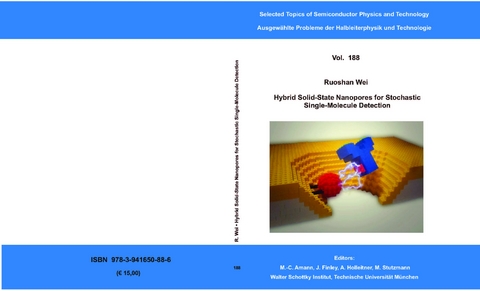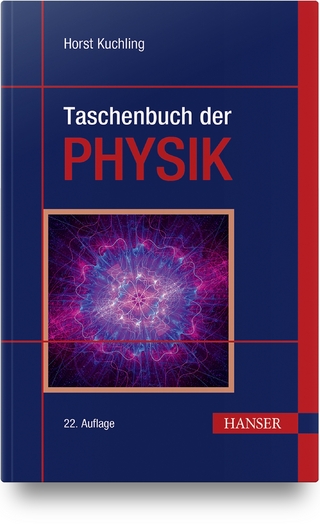Hybrid Solid-State Nanopores for Stochastic Single-Molecule Detection
Seiten
2015
Verein zur Förderung des Walter Schottky Instituts der Technischen Universität München (Verlag)
978-3-941650-88-6 (ISBN)
Verein zur Förderung des Walter Schottky Instituts der Technischen Universität München (Verlag)
978-3-941650-88-6 (ISBN)
- Keine Verlagsinformationen verfügbar
- Artikel merken
The study of biomolecular interaction is crucial to all life science research and provides valuable information for disease diagnostics and drug development. Solid-state nanopores are analytical devices for the label-free detection of single biomolecules and hold great promise to overcome many limitations of conventional ensemble biosensors. In the past, however, solid-state nanopores have been employed as biochemically passive devices that monitor the passage of biomolecules mostly in a counter-like manner. In this work, chemically selective solid-state nanopores are introduced that are capable of discriminating single molecules based on their biochemical property and biological functionality.
First, it will be demonstrated that silicon nitride nanopores can be used to probe the surface hydrophobicity of proteins. Experimental and theoretical evidence for the occurrence of attractive protein-pore interactions is presented and correlated with the presence of hydrophobic patches on the surfaces of the investigated proteins, The findings show that hydrophobic protein-pore interactions are the dominant factor that determines the residence time of a protein when translocating through a silicon nitride pores.
Further, I present two novel concepts for the functionalization of solid-state nanopores, which endow the pores with biochemical selectivity:
In the first approach, molecular receptors are anchored inside metallized nanopores using self- assembled monolayers. The reversible binding and unbinding of individual proteins to the receptors is monitored in real time, and the interaction parameters are studied with respect to competitive binding, receptor position, and receptor multivalence. Furthermore, we show that such receptor-modified nanopores are applicable for the investigation of protein-protein interactions on a single-molecule level. This is exemplified for a nanopore modified with a bacterial protein, which is employed to discriminate the subclasses of rodent antibodies.
In a second approach, DNA origami nanostructures are used as selective gatekeepers for silicon nitride nanopores. DNA nanoplates with central apertures are made by molecular self-assembly and electrophoretically captured onto SiN nanopores. On the one hand, these nanoplates can function as customizable molecular size filters for biomolecules. On the other hand, when single- stranded receptors are incorporated in the aperture, interactions with individual target DNA molecules can be investigated. This is demonstrated for the sequence-specific detection of short oligonucleotides and genomic bacteriophage DNA.
First, it will be demonstrated that silicon nitride nanopores can be used to probe the surface hydrophobicity of proteins. Experimental and theoretical evidence for the occurrence of attractive protein-pore interactions is presented and correlated with the presence of hydrophobic patches on the surfaces of the investigated proteins, The findings show that hydrophobic protein-pore interactions are the dominant factor that determines the residence time of a protein when translocating through a silicon nitride pores.
Further, I present two novel concepts for the functionalization of solid-state nanopores, which endow the pores with biochemical selectivity:
In the first approach, molecular receptors are anchored inside metallized nanopores using self- assembled monolayers. The reversible binding and unbinding of individual proteins to the receptors is monitored in real time, and the interaction parameters are studied with respect to competitive binding, receptor position, and receptor multivalence. Furthermore, we show that such receptor-modified nanopores are applicable for the investigation of protein-protein interactions on a single-molecule level. This is exemplified for a nanopore modified with a bacterial protein, which is employed to discriminate the subclasses of rodent antibodies.
In a second approach, DNA origami nanostructures are used as selective gatekeepers for silicon nitride nanopores. DNA nanoplates with central apertures are made by molecular self-assembly and electrophoretically captured onto SiN nanopores. On the one hand, these nanoplates can function as customizable molecular size filters for biomolecules. On the other hand, when single- stranded receptors are incorporated in the aperture, interactions with individual target DNA molecules can be investigated. This is demonstrated for the sequence-specific detection of short oligonucleotides and genomic bacteriophage DNA.
| Verlagsort | Garching |
|---|---|
| Sprache | englisch |
| Einbandart | Paperback |
| Themenwelt | Naturwissenschaften ► Physik / Astronomie |
| Schlagworte | nanotechnology • single-molecule biosensor • solid-state nanopores |
| ISBN-10 | 3-941650-88-2 / 3941650882 |
| ISBN-13 | 978-3-941650-88-6 / 9783941650886 |
| Zustand | Neuware |
| Haben Sie eine Frage zum Produkt? |
Mehr entdecken
aus dem Bereich
aus dem Bereich
von den Werkzeugen über Methoden zum TQM
Buch | Softcover (2024)
Springer Fachmedien (Verlag)
32,99 €
kurz und praktisch - für Ingenieure und Naturwissenschafler
Buch | Softcover (2024)
De Gruyter Oldenbourg (Verlag)
44,95 €




